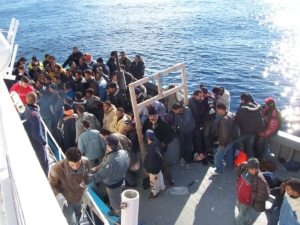Decades of progress in the global fight against AIDS are unraveling following the abrupt withdrawal of U.S. funding, sparking a dire warning from the United Nations of a looming surge in deaths and new infections.
For over 20 years, American support for HIV/AIDS programs has been pivotal, reducing global AIDS-related deaths to their lowest in more than three decades and delivering vital medicines to vulnerable populations. But a dramatic shift in U.S. policy earlier this year has jolted that trajectory.
In January, President Donald Trump abruptly halted foreign aid and later moved to shut down the U.S. Agency for International Development (USAID), wiping out the country’s $4 billion commitment for the 2025 global HIV response. The decision triggered what U.N. officials described as a “systemic shock.”
READ ALSO: Obama, Bush and Bono decry USAID shutdown, blame Trump administration
“If the funding isn’t replaced, it could lead to more than 4 million AIDS-related deaths and 6 million additional HIV infections by 2029,” warned U.N. health experts in a Thursday report by UNAIDS.
The fallout has already begun. “The current wave of funding losses has already destabilized supply chains, led to the closure of health facilities, left thousands of health clinics without staff, set back prevention programs, disrupted HIV testing efforts and forced many community organizations to reduce or halt their HIV activities,” the report detailed.
The damage is compounded by fears that other global donors may follow suit. UNAIDS cautioned that major geopolitical shifts, wars, and the climate crisis are threatening the multilateral support systems that underpinned past successes.
The consequences are particularly stark in sub-Saharan Africa, which remains the epicenter of the epidemic, accounting for half of all new HIV infections. The collapse of American aid has forced many clinics to close their doors overnight, leaving patients without treatment or testing options.
Andrew Hill, an HIV researcher at the University of Liverpool, criticized the lack of notice: “Any responsible government would have given advance warning so countries could plan,” he said. “Instead, patients in Africa were stranded.”
At the heart of this crisis is PEPFAR, the U.S. President’s Emergency Plan for AIDS Relief, launched in 2003 under President George W. Bush. UNAIDS has described it as a “lifeline” for countries hardest hit by HIV, helping to test 84.1 million people and provide treatment to 20.6 million more.
Watch a recent episode of The BreakDown podcast below and subscribe to our channel PanaGenius TV for latest episodes.
Nigeria alone relied on PEPFAR to cover 99.9% of its HIV prevention drug budget, according to national data.
Even prior to the cuts, efforts to curb HIV transmission were faltering in many areas. In 2024, an estimated 630,000 people died from AIDS-related illnesses, numbers that have remained stagnant since 2022, following a dramatic decline from the 2004 peak of 2 million deaths.
Some lower-income nations are beginning to fund their own HIV responses, but the hole left by the U.S. remains too vast to fill.
“There’s nothing we can do that will protect these countries from the sudden, vicious withdrawal of support from the U.S.,” said Tom Ellman, who heads Doctors Without Borders’ South Africa Medical Unit.
Beyond medicine and prevention, a hidden casualty is emerging: HIV data. U.S. funds had long supported surveillance infrastructure, including patient records and digital systems. That system has now gone dark.
“Without reliable data about how HIV is spreading, it will be incredibly hard to stop it,” said Dr. Chris Beyrer, director of the Global Health Institute at Duke University.
Ironically, this collapse is unfolding just as a potential breakthrough in HIV prevention has arrived. Gilead’s twice-yearly injectable drug, Yeztugo, recently received approval from the U.S. Food and Drug Administration. Clinical trials show it is 100% effective at preventing HIV.
South Africa’s Health Minister Aaron Motsoaledi praised the drug’s potential at a recent launch, pledging to “move mountains and rivers to make sure every adolescent girl who needs it will get it.” But he also warned that the continent’s historical dependence on U.S. aid was “scary.”
READ ALSO: Funding cuts from USAID disrupt language education for thousands in Mali
While Gilead has agreed to provide generic versions to 120 low-income countries with high HIV rates, it has excluded most of Latin America, where infection rates are rising.
Peter Maybarduk, of Public Citizen, lamented the lost opportunity. “We could be ending AIDS,” he said. “Instead, the U.S. is abandoning the fight.”










